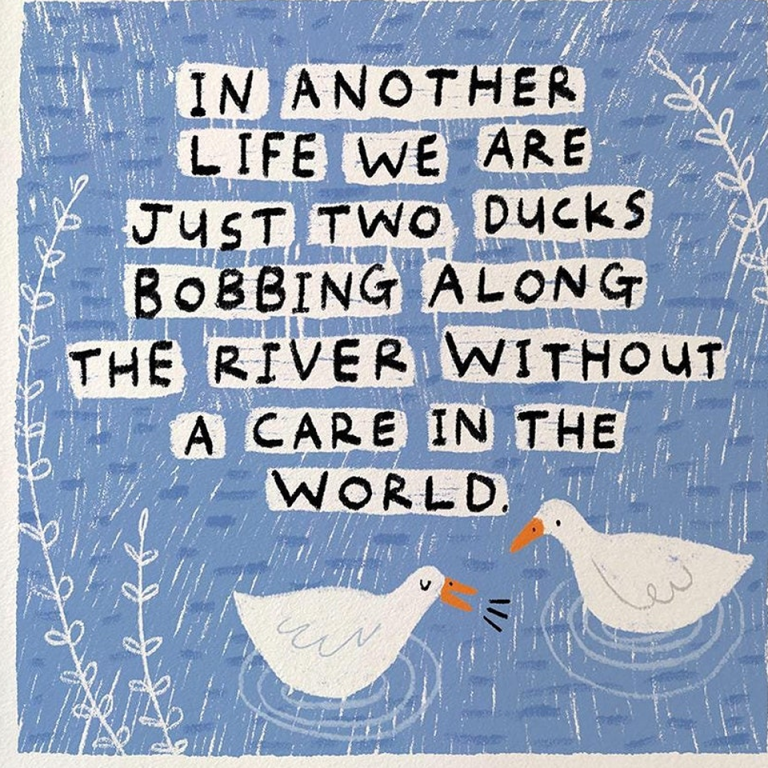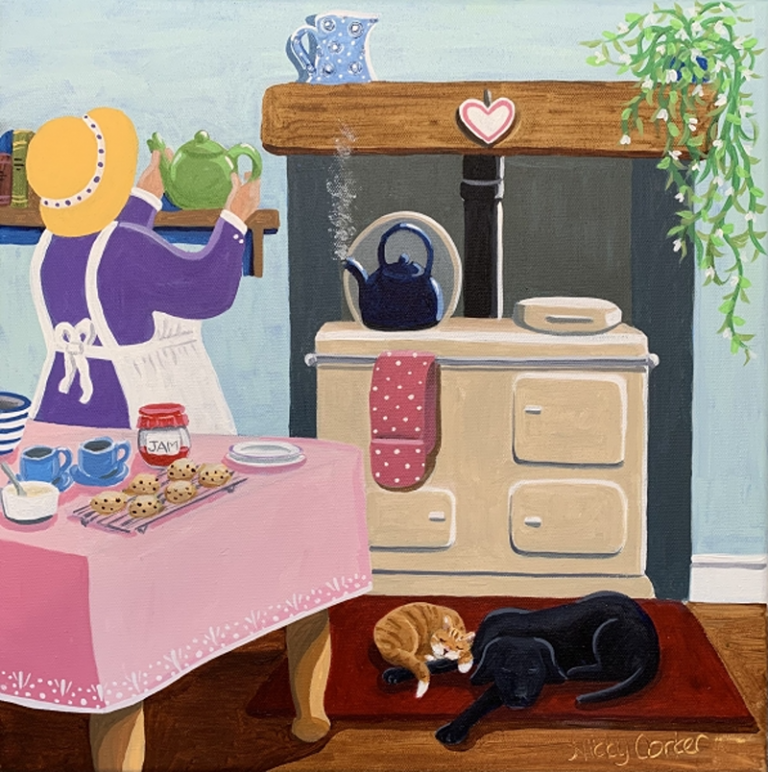
In a country of 60 million people with an ageing population, it’s likely never going to be the case again that you pop to the village baker, deli, greengrocer and indie health store (most sell pills over food).
But there are ways to support indie shops, if only for a weekly loaf of bread or a basket of organic veggies. If we all did that, they would survive. Every little helps!
Run an indie shop? Many seeds, flowers, plants (and plantable cards) are toxic to pets, so learn what not to sell to households with pets. Also read how to save our independent bookstores.
Small indie shops are not just nice for communities to avoid ‘clone towns’ (where all towns look and feel the same), but they tend to have staff who are treated better and paid more. And importantly, small indie shops stick around when things get tough.
You can usually take dogs inside, ‘borrow a bag’, put a few groceries on a tab for older children to collect and often small shops will also order in goods that you request, rather than you have to write an ignored letter to Head Office, if you really want that artisan vegan cheese brand in store.
The main reason to support independent shops is that you usually can get there by foot or bicycle. Many indie shops are in old buildings so can’t adapt for wheelchairs etc. So it pays to have a sign (or website) saying you can deliver locally for free.
Supporting indie shops also means you get to keep money within your community. A small shop owner may well bank with a local credit union, likely employs local people, has no shareholders, employs a local signwriter, and likely also eats his lunch at the local pub!
Shop Local Whenever Possible
When you shop local, you keep money in your community and help create jobs. Think about it: each time you decide to buy from a small shop, you’re investing in your neighbours and fostering local diversity.
- Create a List: Before you shop, make a list of what you need. This way, you can plan visits to local shops that might have what you need.
- Explore New Places: Dedicate time each week or month to visit shops you haven’t been to before. You might discover hidden gems.
- Consider Gift Giving: When special occasions arise, look for gifts in local shops. They often have unique items that reflect your community’s character.
- Pedddle is a site connecting shoppers with independent market stall holders.
Totally Locally: A Worldwide ‘Shop Local’ Campaign
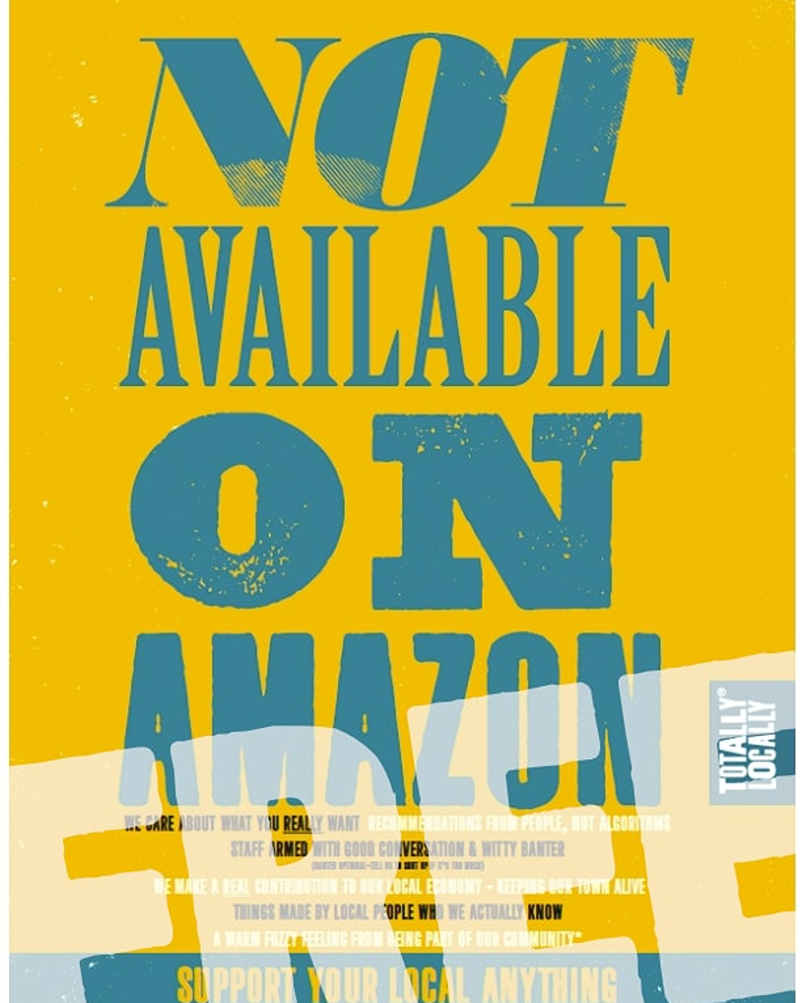
Totally Locally started out as a ‘shop local’ campaign in northern England, and is now a worldwide movement. Volunteers in towns across the earth use its Town Kit, following guidelines and using templates to make their towns more resilient from big supermarkets and chain stores, and support local economies. And any new original ideas, are shared with others.
If selling plants and garden items, read about pet-friendly gardens and wildlife-friendly gardens.
The Totally Locally Town Kit includes all you need to help reinvigorate your high street. You’ll learn how to put your first meeting together, develop posters and logos and print templates. If using this kit, it’s a legal agreement and you can’t change the logos or colours, as it would be breaking the law.
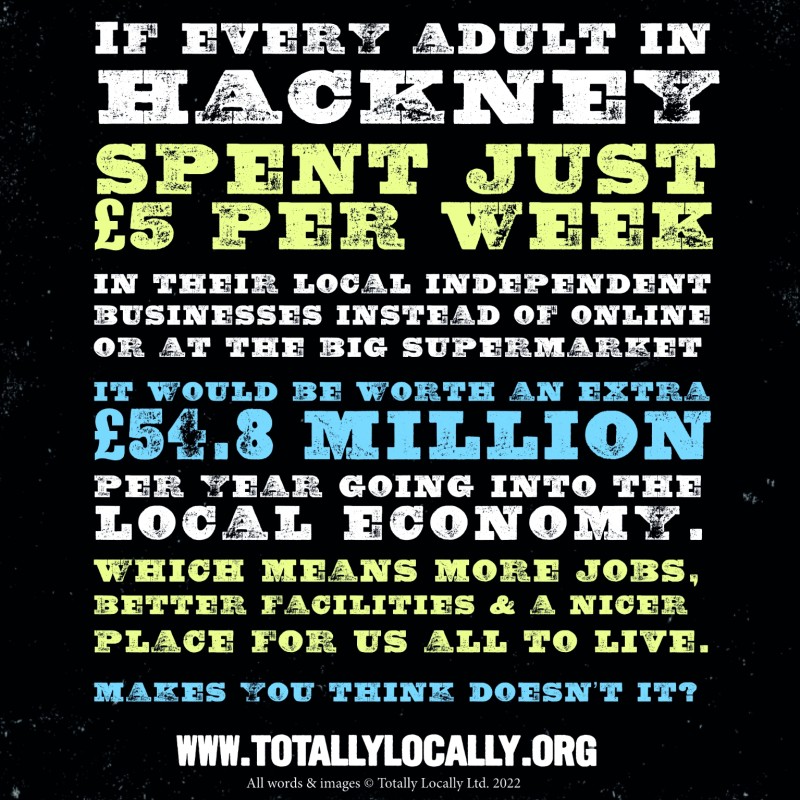
Anyone can download their free posters (translated into many languages) if you’re not ready to set up a Totally Locally Town just yet.
You can order the organisation’s first book The Economics of Being Nice, which explains what the movement is all about, and its many benefits
Fiver Fest and Magic Tenners!
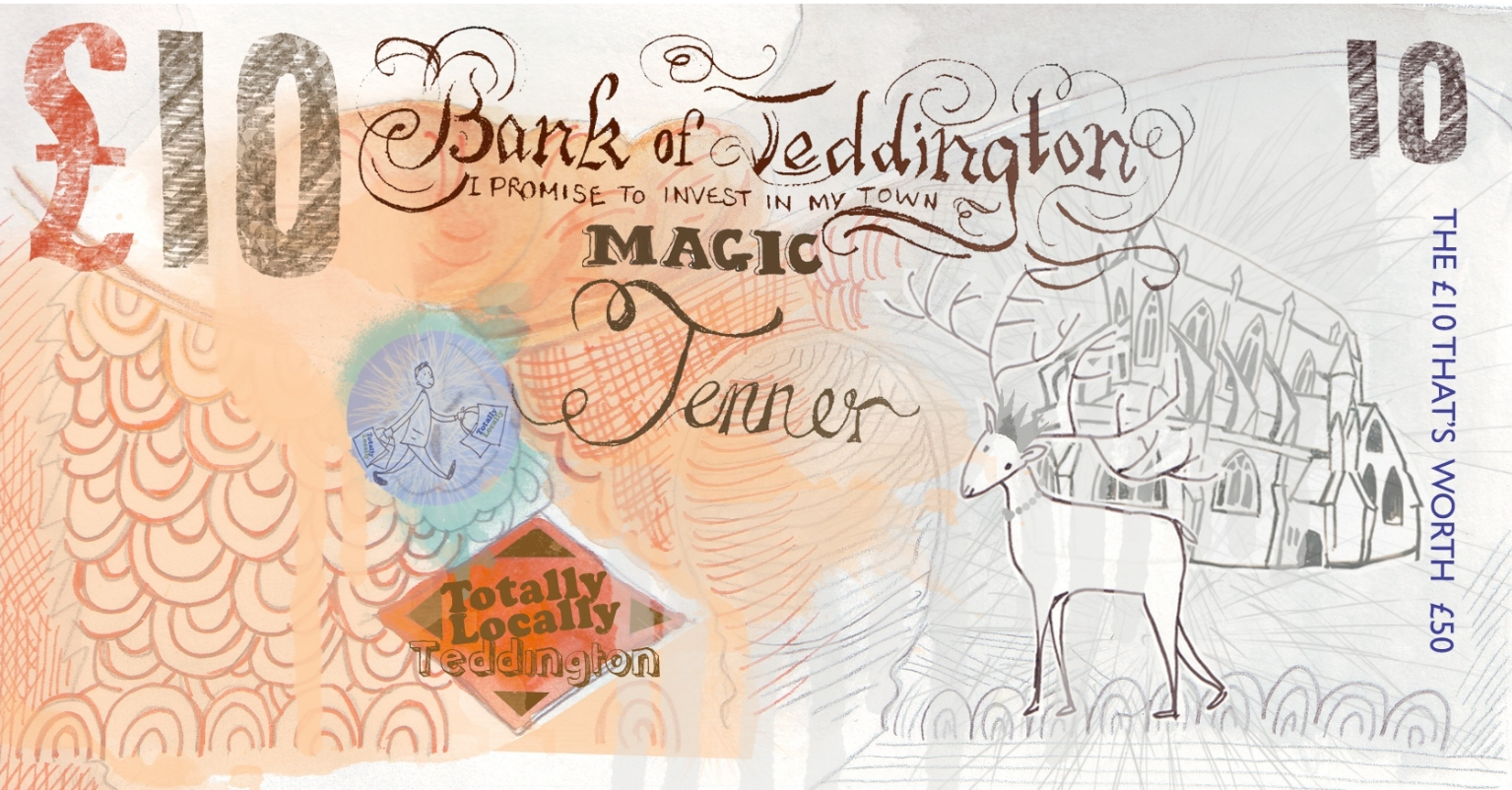
These two campaigns encourage people to spend £5 or £10 a week in independent stores in their town, to bring a collective massive amount of income to local economies. If every adult in the UK spent just £5 per week with local shops and businesses, this would generate £13.5 billion of money to go back to your town.
This is because for every £10 spent, it generates around £50. How so? Because the small shops then buy from local wholesalers, they likely have their lunch in the local pub, and employ local signwriters.
You can even customise the free posters (above) to mould them to your town. Examples are:
If every adult in Penzance spent just £5 a week in local shops (instead of online and at big supermarkets), it would bring an extra £4.1 million into the town.
Here’s another example from the website:
If you buy a local pie from a local shop, a big part of your money is passed to the pie maker. The shop then employs a local accountant or decorator. He buys his ingredients from a local farmer, who spends some of his money at the local garage, who then buys something from someone else who is local…
As a contrast:
If you buy a pie from a big supermarket, it’s likely made with factory-farmed ingredients and palm oil, and sold in plastic packaging. The supermarket has its finances done by a big accountancy firm likely hundreds of miles away, and all the stores are decorated the same, using a big company.
The ingredients for the food sold are hardly ever local (palm oil is from Indonesia) and all the delivery vans are branded, not bought from a local garage. And if one breaks down, it’s unlikely going to be the local mechanic who fixes it.
Around 80p in every pound spent at local shops, stays in the local economy. With chain stores it’s around 20p to 30p. And with online multi-nationals (the word beginning with A!), it’s closer to zero. Nada. Zilch.
Ideas to Help Indie Shops Thrive

- Good Morning, Beautiful Business is the story of a woman in Philadelphia who set up a local cafe to help save her row of Victorian brown houses. And accidentally created a nationwide organic food movement.
- Another good US book is Specialty Shop Retailing by a successful gift shop owner. It covers shop design, pricing, staff, preventing theft, accessibility and add-on online shops.
- Maine’s Sunrise Guide is a green living coupon book, with thousands of dollars off local indie shops and services (so sells itself). Local schools and non-profits keep 50% of profits, on sale or return.
- Indie Cambridge lists all members online, and profiles them in the magazine (they get a professional photo shoot, and invites to pop-up events). Independent Oxford runs a similar website and directory.
- Link to special events (discounts for local veggie restaurants on Valentine’s Day or natural toy stores could invite a juggler along, to entertain children).
- Could you imagine if local councils had a ‘limelight merchant’ to focus on indie shops, how much more money this would bring into the local economy of each town?
How Local Currencies Help Indie Shops

Local currencies work a bit like gift vouchers. Beautifully designed with security features (and often the notes feature local artists), you buy local currencies from banks or shops, then spend them in local independent shops. Then receive your change in pounds sterling.
They are a great way to support independent shops, as big supermarkets and chain shops are not allowed to be involved.
Join Holly’s Independent Shop Movement
Holly & Co is a site founded to celebrate independent shops, and when you join up, you can use one or more of the badges showing the type of shop you operate:
- Vegan-friendly
- Socially-positive
- Made by hand
- Made in the UK
- Made of recycled materials
- Certified B corporation
- LGBTQIA Business
- Kidpreneur
- Disabled-owned business
- Neurodivergent Business (autism etc)
- Female-founded business
- Asian-owned Business
- Brown-owned business
- BIPOC business (black, indigenous)
- Black-owned business
- Sixties-plus founder
- Fifties-plus founder
Eco Envelope Stickers (for small shops)
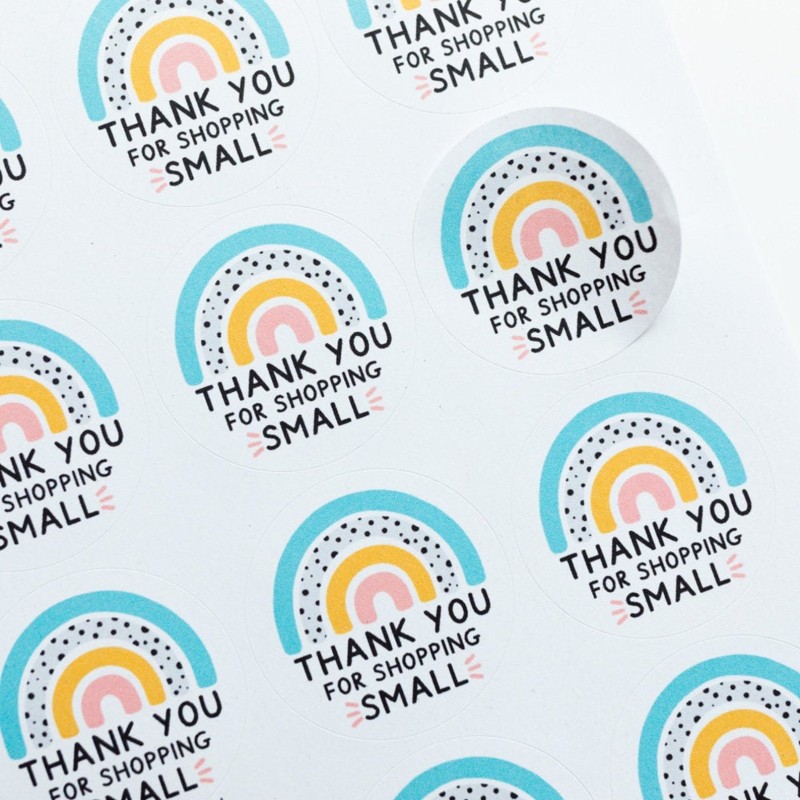
These creative envelope stickers serve a purpose, they are paper-based (not vinyl) so easy to recycle. From thanking customers for shopping small, to preventing people from bending or smashing photographs or fragile items in envelopes, or to apologise for tatty packaging, if you’re a small shop sending out items in reused packaging.

Each sticker set is made from recycled materials, and is easy to recycle due to water-based adhesive and eco-conscious vegetable inks. The backing paper is made of siliconised kraft (easy to recycle in some areas, check with your council).
Just investing in a few sheets of these helps to keep your small shop quirky and original, and sends a friendly message that unlike big stores, your packaging may not be perfect to look at, but it’s more planet-friendly! Choose from:





